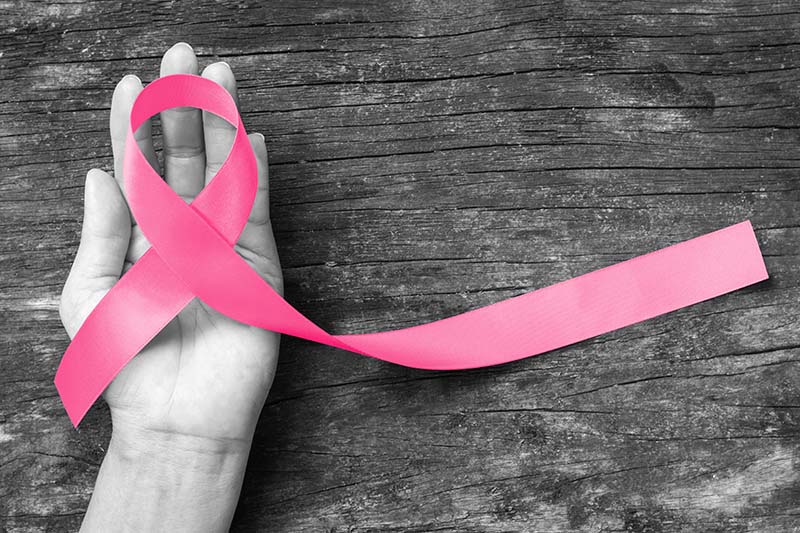Surprising but Important Facts About Breast Cancer
Even though it’s one of the most common types of cancer, you may not know these facts about breast cancer.

More than 266,000 people are diagnosed with breast cancer each year. Although it’s one of the most common types of cancer, many people still don’t fully understand this illness. There is a lot of misinformation and stigma about the disease, and people don’t realize that they can be impacted by breast cancer—even if they never get it.
October is Breast Cancer Awareness Month. The most important thing you can do is educate yourself. Here are some surprising facts about breast cancer that are important for you to know.
People are Detecting Breast Cancer Earlier
Survival rates for breast cancer are going up. This is partially due to increased awareness, better diagnostic tools, and more people doing breast self-examinations. Since more people are catching lumps earlier, 65% of breast cancer cases are diagnosed at a localized stage, meaning that the cancer has not spread outside the breast. This type of limited breast cancer has a 99% 5-year survival rate.
Yes, Both Men and Women Can Get Breast Cancer
A common misconception is that only women get breast cancer. While the vast majority of cases are diagnosed in women—approximately 264,000 women each year—men can also get breast cancer. About 2,400 men are diagnosed and 500 men die from breast cancer each year.
Related: Preventive Care for Men and Women: Cancer Screenings
Breast Cancer Has Huge Economic Effects
In 2020, costs associated with breast cancer were estimated at $16.5 billion. To put that into perspective, if you saved $100 per day, it would take you more than 450,000 years to reach that total.
Getting cancer of any kind can be expensive, but breast cancer involves more patient costs than patients diagnosed with lymphoma, lung cancer, or prostate cancer. In addition to treatment costs, breast cancer often comes with other costs. Lymphedema is a common condition that goes along with breast cancer, and patients often need lymphedema sleeves or other treatments, which may or may not covered by insurance. Traveling to and from doctors’ visits and chemotherapy appointments racks up bills. If someone is too sick with breast cancer to work, the person’s career may suffer for the rest of their life.
Even if you aren’t the person diagnosed, breast cancer can still impact you. Family members may need to take time off work or even quit their jobs to care for the patient. When members of the community are too sick to work, companies may struggle to backfill the jobs. There is also the mental and emotional toll that breast cancer takes not only on the patient but also on their family members, friends, and neighbors.
There’s Still a Stigma
Although breast cancer is a very common type of cancer, it’s very unfortunate that there is still a stigma around it. Some people still feel shame or embarrassment about mammograms and breast health. This is dangerous because the stigma can prevent people from seeking medical care.
There is nothing wrong with talking to a medical professional about breast health. To help combat the stigma, here are some helpful tips for talking and communicating about breast health.
- If you get nervous at doctor’s appointments, think about the questions you want to ask before you go. Make a list of topics, so you don't forget what you wanted to talk about.
- Create boundaries. If there are relatives who say ignorant or unkind things about your breast cancer diagnosis, you don’t have to spend energy on them. Sometimes people can be very nosy about your condition. You can decide how much information to share and when to share it—you are not obligated to answer everyone’s questions.
- It’s easier to talk about breast health with other people if you’re comfortable with the topic yourself. Joining support groups can help you become more at ease with talking about breast health.
Related: Getting an Annual Mammogram Could Save Your Life
To find more information about breast cancer, learn about prevention and risk, and connect with support groups, visit https://www.cancer.org/cancer/breast-cancer.html.







